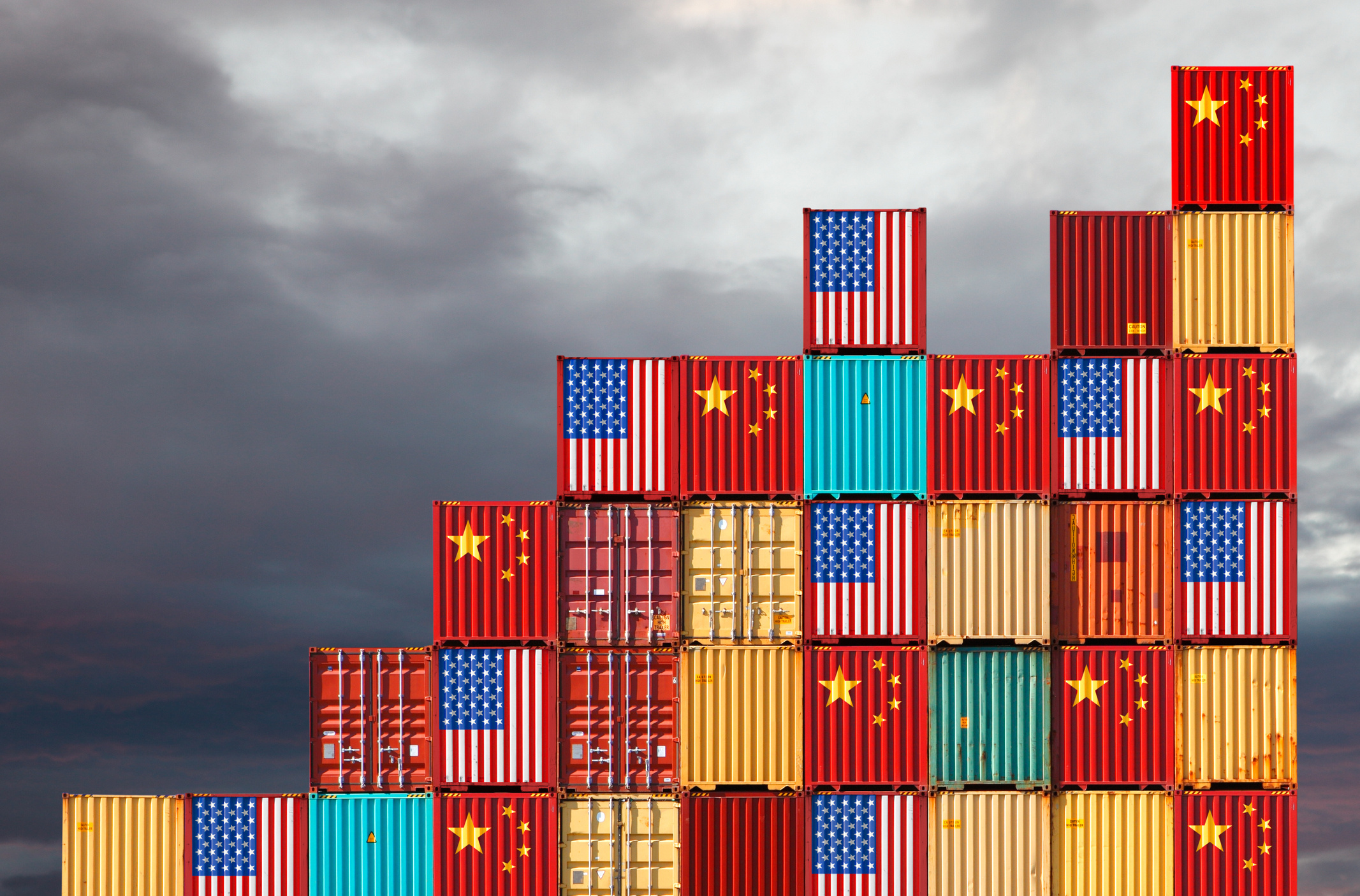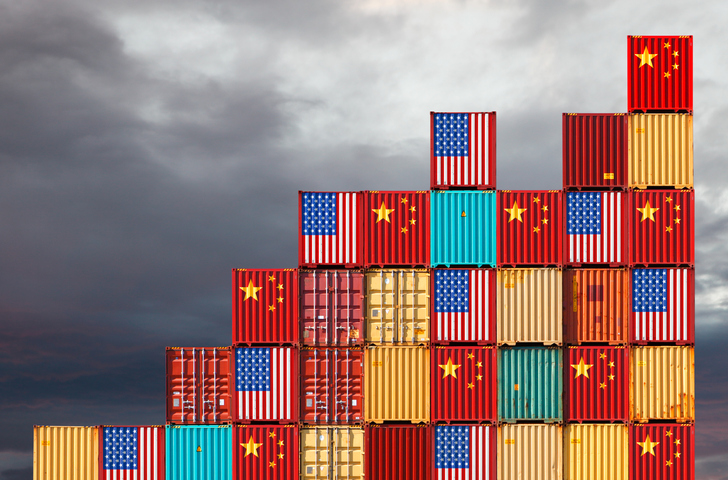The nationalist rhetoric of the Trump administration can obscure a more sophisticated recognition by some people in the populist world that the core dynamic of the China-US relationship isn’t two nation-states opposed to one another. Rather, it is an authoritarian government in China that is deeply aligned with Wall Street against the public in both nations.
Since 2016, the Republicans, long a party supportive of free trade with China, began changing their relationship to both China and Big Finance. President Donald Trump is a protectionist who loves tariffs and closing down borders. But behind him, there is a notable new thought collective of populists who pay attention to China, which includes figures like White House advisor Peter Navarro, Fox News anchor Tucker Carlson, Senators Josh Hawley, Marco Rubio, and Tom Cotton, American Compass founder Oren Cass, Rising anchor Saagar Enjeti, and United States Trade Representative Robert Lighthizer.
The shift is not party-wide by any means, but it is substantial enough to massively influence policy.
This new populist thought collective includes some of the first major political figures to really get the impact of the coronavirus, and it also includes some of the more assertive influencers of the policy debate.
There is a deep streak of raw nationalism here, with Tom Cotton almost seeking a great power conflict and acting reflexively hostile to multilateral institutions. But the nationalist rhetoric and jingoism of Trump can obscure a more sophisticated recognition by some people in this new populist world that the core dynamic of the China-US relationship isn’t two nation-states opposed to one another; it is an authoritarian government in China that is deeply aligned with Wall Street, against the public in both nations.
One way Republican senator Marco Rubio has tried to deal with Chinese control in the American economy is through industrial policy, meaning the explicit shaping of industrial enterprises by state financing and control. One of Rubio’s initial goals was to meet the security threat from Huawei, the Chinese telecom giant that is threatening to take over the global communications apparatus. But he’s also gone more broadly into manufacturing in general, and small business, which is a more Brandeis-style frame.
Regardless, the intellectual ferment on the right is real and fascinating. The first fruit of this philosophical discourse is the massive SBA Paycheck Protection Program, which is a $349 billion lending program to small businesses negotiated with Democratic Senators. So far, the program excludes private equity-controlled corporations, and though that may change, such legislative design implies genuine skepticism of the role of high finance. That’s a significant shift from traditional Republican orthodoxy.
Operationally speaking, the PPP is a mess, and Republican populists will have to confront the many institutional challenges involved in trying to get large amounts of money through the “rusty pipes” of our banking system. But it’s still a remarkable achievement.

A New American Deal?
But that’s not the end of the debate. The new populist thought collective has much broader aims.
Last week, a second key leader of this group, Republican Senator Josh Hawley, introduced an expansive vision document titled “Getting America Back to Work” on how to save the American worker and then position American industry to address the China problem.
Hawley is perhaps the single most aggressive Republican when it comes to corporate power, addressing structural problems with Big Tech, Wall Street, and landlords, and attacking liberal power centers like academia, Silicon Valley, and Hollywood. Like Rubio, he has a core philosophical premise; his book Theodore Roosevelt: Preacher of Righteousness is a genuinely excellent work on 19th-century intellectual history, race, imperialism, and the corporate state.
Hawley’s plan emerges from his view that America should exist as a moral society anchored by the broad middle of the nation, which he sees as the family, the local community, the local business or civic association, and the church.
The plan starts by mimicking what Denmark and the UK have done, which is to offer payroll support to firms to keep workers employed instead of offering welfare to the newly unemployed. But it also includes a firm crackdown on Wall Street and mergers, and inducements to begin making things in America again.
In some ways, it is the outline of a New Deal-style arrangement, taking power from the financiers and returning it to private businesses, workers, and public institutions.
Under Hawley’s plan, the Federal government would pay the salaries of workers by giving firms a refundable tax rebate for 80 percent of their payroll costs. It would also give bonuses to firms that rehired employees, and a bonus once the emergency ends so they can kickstart operations. This is all done through the IRS, which is probably the most effective remaining bureaucracy in the US that touches normal people.
So far, that’s standard payroll support.
But then there’s this fascinating nugget: “Antitrust enforcers must redouble their efforts in this crisis to scrutinize mergers prompted by this crisis and brought to light through such disclosures.” That’s a clear nod to the resurgence of the importance of antimonopoly policy, and how it is critical to prevent the concentration of power in markets that may happen as a result of a distressed economy combined with cheap government-backed credit in the hands of bankers. (Already, a giant food distributor US Foods, which was blocked from merging with Sysco just a few years ago, bought a smaller competitor at a lower than expected price, and the FTC cleared the deal almost immediately.)
Hawley also included a provision to fend “off hostile takeover bids from activist investors aiming to force unwanted consolidation and liquidation” by requiring more disclosure by hedge funds.
There are also more industrial policy-style components, like local content requirement rules for medicine and medical equipment, subsidies for firms who want to build industrial ecosystems domestically, and federal-backed low-interest lending for capital equipment financing.
Finally, Hawley seeks to reverse one of the signature shifts from the 1980s onward, which is the increasingly-debt laden nature of the American corporation. “Companies making record profits should be obliged, not discouraged by investors and the government,” the plan says, “to hold onto a financial cushion during growth years to prepare for moments of crisis.” That implies that corporations will need more cash and equity, and less debt, fewer stock buybacks, and less asset-stripping.
Unlike Rubio’s more focused small business lending program, there are details in this vision document that will require substantial fleshing out. I could nitpick. For example, the funding mechanism of using payroll taxes leaves me a bit queasy in terms of ensuring Social Security benefits keep getting paid out as they are now, the plan leaves out private equity and the Federal Reserve, and there are substantial trading and financial policy changes that would have to accompany such a plan.
Each objection could be fixed; for instance, Hawley could easily tack on this legislation written by a group of Democratic Senators who have worked through the problems of private equity. Problems with the details are beside the point.
This document is designed to provide a framework for how to respond to the pandemic, and then have policy chunks enacted as they are useful, much as Rubio leveraged his vision on industrial policy to enact a small business lending change.
I don’t want to overstate changes on the Republican side.
The strategic problem this new populist thought collective faces is a massive institutional legacy of libertarian thinking in the Republican Party, as well as undercurrents of racism. There’s also a deep distrust of Democrats, which makes it hard to work with potential allies. And even where they have leverage on political economy, their dilemma is similar to that of progressives under Barack Obama; Trump, while sympathetic to their aims in some ways, is cross-pressured by Wall Street. And he’s beloved by the Republican base, so if Trump goes sideways, there’s little they can do.
At any rate, I’m a bit down on the possibility of policy change right now, because the catastrophic bailout passed 96-0 and will have destabilizing consequences. But nothing is inevitable. And there are glimmers of possibility.
Matt Stoller is the author of Goliath: The Hundred Year War Between Monopoly Power and Democracy and Director of Research at the newly-founded American Economic Liberties Project. This column originally appeared in BIG, Stoller’s newsletter on the politics of monopoly. You can subscribe here.
ProMarket is dedicated to discussing how competition tends to be subverted by special interests. The posts represent the opinions of their writers, not necessarily those of the University of Chicago, the Booth School of Business, or its faculty. For more information, please visit ProMarket Blog Policy.







